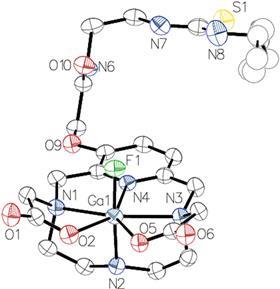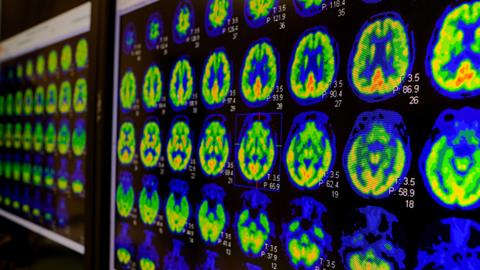A Franco-Belgian team has developed a gallium-18F complex for PET scans that can also be attached to biomolecules. It could be turned into an 18F radiolabelling kit, they write in Chemistry A European Journal.
Positron emission tomography (PET) is a medical technique developed to better study tissue and has applications in cancer research and cardiology, among others. It works by trapping positrons, charged particles that emit radioactive substances, of which fluorine-18 (18F) is the most commonly used. Current fluorine-labelled radiotracers work well, but they are made by organic synthesis in a way that is incompatible with biomolecules, whereas the field of oncology is moving in a direction that uses biomolecules.
Milder
Attempts to find a milder production process using aluminium complexes are well under way, but high temperatures and relatively acidic conditions are still required. Fabienne Dioury, Marc Port and colleagues at the Conservatoire national des arts et métiers in Paris and the Université de Mons (B) have found an alternative in the form of a gallium complex.

Gallium, like aluminium, coordinates well to fluorine. So if you can make a chelating molecule that binds to both gallium and biomolecules, then you have solved the problem. You will also not have to worry about the half-life of 18F: you can synthesise these molecules first and then make the 18F complex when you need it, making the best use of the radioactivity.
Stable
The researchers developed a synthesis route at room temperature that is stable in different aqueous media, resulting in a gallium complex with a coordinating hydroxy group. This hydroxy group can then be exchanged for 18F, with the team achieving a radiochemical conversion of 86% at room temperature and pH 5, without the need for subsequent purification.
Of course, these complexes still need to be tested in vivo, but the first step towards radiolabelling biomolecules has been taken.
Dioury, F. et al. (2024) Chem. Eur. J. e202403358, DOI: 10.1002/chem.202403358













Nog geen opmerkingen